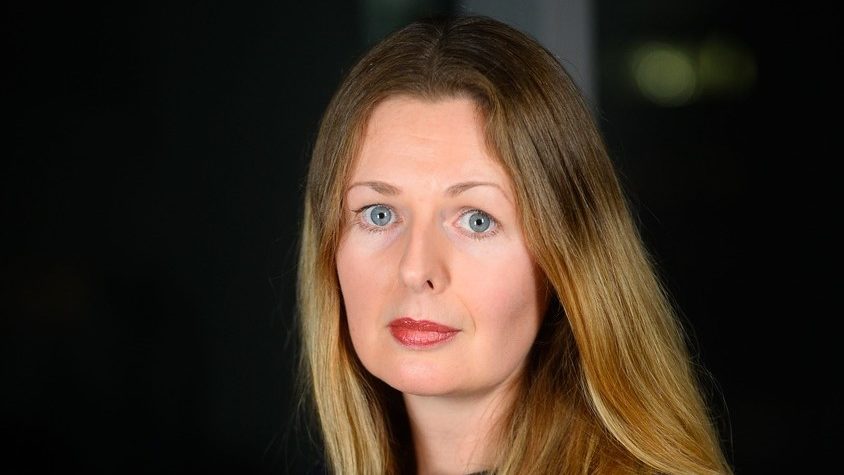Many freelancers and small business owners would like to see the national insurance tax hike set for this April to be postponed. But in light of upcoming MP pay rises and soaring energy prices, a growing number of them are calling for the tax hike to be scrapped altogether. Could the Conservatives have a change of heart?
- To date, the government has ruled out delaying the National Insurance hike, cutting VAT on energy costs, or suspending green levies on energy bills during the crisis.
- According to Hargreaves Lansdown, government is likely to boost support for energy bills among lower earners and the most vulnerable – although this isn’t all that it seems.
- The government is also looking at a mechanism to smooth out energy price hikes.
- The energy price cap is due to be updated on 7 February

According to some small business owners, not all is at it would seem when it comes to the pending national insurance increase. Owners, such as Lucinda O’Reilly, Director at The International Trade Consultancy, would, for example, feel more comfortable if her increased national insurance tax burden would be ringfenced. But that’s not the case.
“When the increase to National Insurance was announced we were told it was to pay for social care, which most people agree is something that needs to be tackled,” says O’Reilly.
“However,” she continues, “since then, it appears that the money will go into the NHS budget rather than being ringfenced.
It’s obvious to everyone that the £370 billion that’s been spent on the pandemic needs to be recouped at some point and that taxes will go up but with all the other pressures on individuals and business at the moment this seems like a blunt instrument at the wrong time. Many sectors have done very well out of the pandemic so surely they should be asked to contribute more?
Lucinda O’Reilly, Director at The International Trade Consultancy
Robert Peters, Principle at Simple Fast Mortgage, sees some very dark days ahead for the UK’s freelancers and small business owners.
“The debt-saddled public is at risk of being swept away by an avalanche of soaring inflation, energy costs and interest rate rises, and the National Insurance hike will only add to the pain,” says Peters.
The mortgage specialist makes a fair point that the average salary in the UK is around £30,000 and is already being stretched to the maximum. But as he points out, some folks will be better off:
Ironically, MP salaries are set to rise from £82,000 to £84,000 on the same day as the NI increase. You couldn’t make it up.
Robert Peters, Principle at Simple Fast Mortgages,
Be informed. Be heard. Be part of the solution.
Could the Conservatives have a change of heart?
“At this stage, it looks like the government has ruled out easing the tax squeeze in April,” says Sarah Coles, senior personal finance analyst, Hargreaves Lansdown.
“Calls to delay the National Insurance hike and to cut VAT and green levies on energy bills seem to have been rejected. However, with this level of pressure from all sides, you can never say never.
She continues, “Even if it sticks to its plans, there’s still hope that it will step in to stop energy bills pushing millions of people’s finances into the abyss. We’re expecting an announcement before the energy price cap is updated on 7 February.”
Coles believes that postponing the NI hike would open up a funding hole for the government:
Health costs are only going to increase, as the pandemic continues to put the system under pressure, so it would need to find an alternative source of cash. In an era of rising borrowing costs, simply borrowing through the crisis is a more expensive solution.
The government has been thrashing out a deal with the energy industry to smooth price hikes. The aim, says Coles, is to provide energy companies with loans to subsidise lower prices now.
She suggests: “These would then be paid back by adding a supplement to energy bills when prices fall back. This isn’t going to cut the cost of energy overall – just spread the pain over a longer period of time.”
She explains that these loans could be provided directly from the government, or it could negotiate for the banks to offer them. The potential fly in the ointment is whether energy prices will drop in the months to come, and how long these loans will have to last.
Coles says “government support” is not always as it seems:
We’re also expecting to see more support for those struggling to pay their bills – but this isn’t all it’s cracked up to be. Last summer the government consulted on expanding the Warm Home Discount scheme (which offers £140 a year off your energy bills) from 2.2 million households to 3 million and increasing payments to £150.
The significant problem is that not only will an extra £10 be a drop in the ocean for the most vulnerable, but because the cost of these rebates is currently paid by energy companies and passed onto billpayers, everyone else could see their bills rise by £5. This isn’t extra help from the government – it’s effectively extra help provided by you.
Keith Budden, Managaing Director at IT Secutity firm, Ensurety, is taking a practical stance to the debate. “I think the economy as a whole, and all those households and businesses who are just about managing would appreciate the Government making a tactical decision and delaying the NI increase until October 2022,” says Budden.
New tax avenues yet to be taken
To address the immediate crisis, the Labour party has said that it would bring in fully-funded measures now to reduce the expected price rise in April – saving most households around £200 or more but targeted extra support to squeezed middle, pensioners and the lowest earners, receiving up to £600 off bills and preventing all of the increase in energy bills currently expected.
They would pay for this with a one-off windfall tax on North Sea Oil and Gas producers who have profited from price rises.
“The Government has been warned by several experts that the forthcoming energy price hikes are going to push even well-established businesses into the red and create a serious unemployment issue,” says Adam Bamford, CEO of Colleague Box.
“With the prospect of many small businesses going to the wall, the Government should be doing anything they can to assist us. They’ve admitted to a swelling purse from VAT so perhaps now they can help us out in return,” Bamford suggests.



